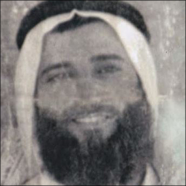Overview
Abu Suleiman al-Naser, whose real name was Neaman Salman Mansour al Zaidi, was a Moroccan-born Syrian citizen and the minister of war of the Islamic State in Iraq (ISI), the direct predecessor of ISIS.David Trayner, “Top 5 Islamic State leaders we must kill revealed,” Daily Star (London), October 11, 2015. https://www.dailystar.co.uk/news/latest-news/469437/islamic-state-leadership-most-wanted-terrorists-revealed; Gianluca Mezzofiore, “Isis leadership: Who’s who in ‘fluid’ Islamic State structure of power,” International Business Times, July 2, 2015, http://www.ibtimes.co.uk/isis-leadership-whos-who-fluid-islamic-state-structure-power-1509014; David Trayner, “Top 5 Islamic State leaders we must kill revealed,” Daily Star (London), October 11, 2015, http://www.dailystar.co.uk/news/latest-news/469437/islamic-state-leadership-most-wanted-terrorists-revealed. Iraqi security forces killed Nasr in a February 2011 raid.“Al-Qaeda 'military leader' Abu Suleiman killed in Iraq,” BBC News, February 25, 2011, http://www.bbc.com/news/world-middle-east-12581313.
In as early as 2003, Naser traveled to an al-Qaeda training camp in Rawa, Iraq, which was later raided by U.S. forces. He was detained and sent to the U.S.-run Camp Bucca detention facility.David Trayner, “Top 5 Islamic State leaders we must kill revealed,” Daily Star (London), October 11, 2015. The prison, which operated in Umm Qasr, Iraq, from 2003 to 2009, held inmates that would go on to become top leaders in ISIS, including Abu Bakr al-Baghdadi and Abu Ayman al-Iraqi.Bill Roggio, “Al Qaeda in Iraq’s security minister captured in Anbar,” Long War Journal, December 1, 2010.
Naser joined ISI after Camp Bucca’s closure in 2009. In April 2010, ISI’s former minister of war, Abu Ayyub al Masri, was killed in a joint U.S.-Iraqi raid alongside ISI leader Abu Omar al Baghdadi. Naser was appointed the new minister of war, as ISI preferred a non-Iraqi to serve as the minister so that tribal affiliations would not conflict with the group’s interests. Abu Bakr al-Baghdadi was appointed ISI’s new leader.David Trayner, “Top 5 Islamic State leaders we must kill revealed,” Daily Star (London), October 11, 2015;
Thomas Joscelyn, “The Islamic State of Iraq and the Sham’s quiet war minister,” Long War Journal, June 16, 2014.
Several reports in 2014 claimed that Naser was alive and serving as ISIS’s military chief. However, in February 2011, the Iraqi government claimed to have killed Naser in a raid.“Al-Qaeda ‘military leader’ Abu Suleiman killed in Iraq,” BBC News, February 25, 2011, http://www.bbc.com/news/world-middle-east-12581313. Although his death was disputed, Naser has made no statements since 2011. Furthermore, in 2016, an ISIS insider confirmed Naser’s death in a detailed account of the history of ISIS’s leadership.Aymenn J. al-Tamimi, “An Account of Abu Bakr al-Baghdadi & Islamic State Succession Lines,” Aymenn Jawad Al-Tamimi's Blog, January 24, 2016, http://www.aymennjawad.org/2016/01/an-account-of-abu-bakr-al-baghdadi-islamic-state.
Associated Groups
- Extremist entity
- ISIS
- Read Threat Report
- Type(s) of Organization:
- Insurgent, territory-controlling, religious, terrorist, violent
- Ideologies and Affiliations:
- Islamist, jihadist, pan-Islamist, Salafist, takfiri
- Position(s):
- Former minister of war - deceased
ISIS is a violent jihadist group based in Iraq and Syria. The group has declared wilayas (provinces) in Egypt, Libya, Algeria, Yemen, Saudi Arabia, Nigeria, Afghanistan, Pakistan, and the North Caucasus. ISIS has also waged attacks in Turkey, Lebanon, France, Belgium, Iraq, Bangladesh, Indonesia, Malaysia, Tunisia, and Kuwait.
History
Daily Dose
Extremists: Their Words. Their Actions.
Fact:
On May 8, 2019, Taliban insurgents detonated an explosive-laden vehicle and then broke into American NGO Counterpart International’s offices in Kabul. At least seven people were killed and 24 were injured.
